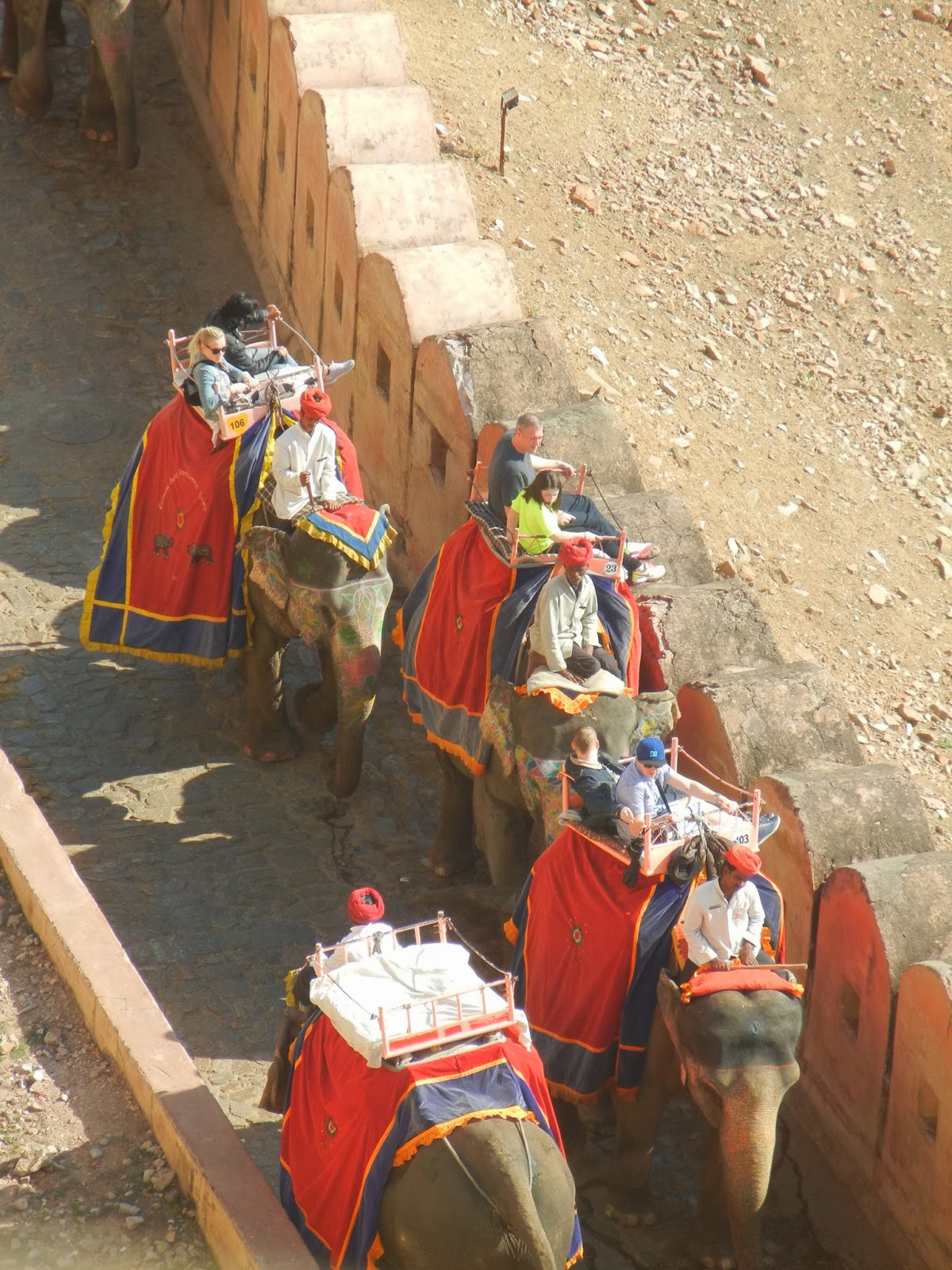February
11-14, 2014
Jaipur,
India
We
arrived in Jaipur in the early evening and, as we drove through the
outskirts of this bustling city, I was initially aghast at the chaos
and the squalor. Perhaps it is because this is an urban venue, as
opposed to a small village, that I had such a visceral reaction; the
dirt, the pollution, the mass of humanity living in an inhuman way
were difficult for me to “take in” and I was surprised at the
strength of my emotion.
Staying
at the Jai Mahal Palace Hotel and enjoying a delightful dinner and
wine with some new friends did a lot to remind me of the continued
contradiction that I had been living in for the past two weeks and, as I had heard much about the fascinating history and beauty of the “Pink City”, so named for the color of the stone used in the construction of its palaces and the covered walkways of downtown, I knew that my days here would be
eventful.
Jaipur,
the capital city of Rajasthan, was founded in 1727 by Maharaja Sawa
Jai Singh II, who was then the ruler of Amber and after whom the city
is named. Jaipur is India's first planned city and its heritage,
culture, and architecture are unlike anything I had seen in India.
Our first day of touring began with an elephant ride up to the
ancient ramparts of Amber Fort...much fun and laughter and a very
colorfully decorated elephant! The architecture of the fort, its
history, and the views of the city were enthralling. After lunch came
a city tour and a stop at a local bazaar where I “took a wrong
turn” in the maze of shops and shopkeepers, but was lucky to find
some of my group, before the “search party” was sent out!
Our
dinner was at the home of a wonderful couple whose generosity and
graciousness were, indeed, a privilege to experience. From their
adoption of six young girls who had been left abandoned, as well as
the funding of a home for 47 HIV-infected children, this intriguing
duo enthralled us with stories of their family background and what
they are doing for the betterment of others. What I found most fascinating was my conversation on arranged marriages. The “product”
of an arranged marriage, as was the couple in Agra, these parents are "searching" for a husband for their eldest daughter.
Both parents take a keen interest in the process, investigating all
there is to know about the “boy” and his family-social, economic,
etc. The “marriage” is not just to a person, but to a family so
the research is exhaustively thorough. Most important, however, is
the “meshing” of the astrological data of the daughter and her
prospect. If alignment is lacking, then it is clearly not a match.
Down the line, the exact date and time of the wedding are determined
by an astrology chart...nothing is left to chance. I was told that
should the daughter not be in favor of her parents' choice, she is
permitted not to accept, but should she accept and an announcement
is made, then there is no changing her mind. Coming from such a
sophisticated and well-educated couple (She is descended from a royal
family who had to give up a lot of wealth and property when India
became independent), I didn't expect such views, but by the time we
finished talking, I understood so much more about the love and
thought that goes into this time-honored tradition.
Our
next day included a tour of the Jantar Mantar Observatory City and
the City Palace; two completely different and remarkable testimonies
to the history of this city. Lunch at the Maharaja's Palace was
glorious and, although we didn't see him, just knowing we were dining
on the royal grounds, was a treat...and so was the food! Reading A
Princess Remembers - The Memoirs of the Maharani of Jaipur by
Gayatri Devi after leaving India gave me an insightful glimpse into
the glory of times past and a deeper appreciation of the Jaipur of
today...and, although its brilliance has tarnished, it is still a
jewel.

























No comments:
Post a Comment